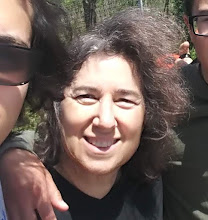Sunday, June 17, 2007
The Jewish Day School: Let Us Think Twice
In July 1951, Rabbi Victor Reichert of Cincinnati’s Rockdale Temple published a sharp rejection of Jewish day schools which were emerging in greater numbers in the post-war years. “The Jewish All-Day School, like Jonah’s gourd, has come up in the night of despair,” he wrote. Reichert attributed their growth to “fears of the total assimilation of Judaism in America,” but confidently predicted that the Jewish school movement, like Jonah’s gourd would “wither in the broad daylight of renewed faith in freedom and the democratic process”
The establishment Jewish position has shifted from that of Reichert’s day. In fact, Jewish day schools which, as he pointed out, began as an outgrowth of Orthodox Jewish life, have now been embraced by the Reform and Conservative movements.
Prevailing opinions may have changed, but Reichert’s strong words should challenge us to consider the cost of “continuity” when it leads to a willingness to withdraw from the broader community as reflected in choices about place of residence, communal life, or education.
"Liberal Judaism gladly accepts the invitation and the challenge of American democracy. We do not conceive of our heritage as a hot-house flower that needs to be rigorously protected from the wholesome give and take of free association and the adventure in shared living provided by our great American system of free public schools.
The All-Day School seeks survival by voluntary withdrawal and segregation from the American public school – the best workshop we have to forge the tools for a more ideal America. It is my contention that any project, however nobly motivated, that subtracts any American child from the wholesome give and take of the public day school, in some measure dwarfs the child’s outlook by depriving him of the vigorous experience and exciting adventure in democratic group living. Where better than in our American public schools is democracy carrying on its fateful battle against narrow prejudices, bigotry and all forms of intellectual and social caste and stratification."
Reichert shared many of today’s concerns about Jewish continuity, but he maintained hope that American Jews should be able to find a strong Jewish identity without sacrificing full engagement in American life:
"In our natural anxiety as liberal religious leaders over the failures, shortcomings and limitation of our homes, temples and synagogues, our Sabbath and Sunday schools and week-day classes thus far, to become really effective instruments for transmitting a robust and self-reliant acceptance of our Jewish heritage, let us think twice about the Jewish All-Day School a euphemism for Jewish parochialism! Are we leaping form the frying pan into the fire?”
Reichert believed public schools were key to the American ability to nurture distinctiveness and to the whole project of democratic equality:
“I want an America where children will respect and appreciate the religious and cultural difference into which they were born apart, because they have shared in the basic human enterprises they have lived together. …. I want America to continue to be the land where the pilgrims and peddlers of one generation can become the patrons of art and the professors of science of the next – where the common man will always have the opportunity to show how uncommon he can become – an America that will spell opportunity for character, integrity, consecration, ability. I want an Am erica where the word ‘minority’ will be nonsense because the barriers based upon the accident of birth will be transformed into bridges – bridges built by Americans who have achieved self-reliance but who have learned to share their spiritual and material possession with others for the larger, universal good.
The Public School is the best instrument we possess for the achievement of such a democracy. If we really believe in democracy, let us think twice before we rob any American child of the robust challenge of this adventure.”
excerpted from Victor Reichert, "The Jewish Day School: Its Fallacy and Dangers," American Israelite, July 19, 1951
Subscribe to:
Post Comments (Atom)


No comments:
Post a Comment